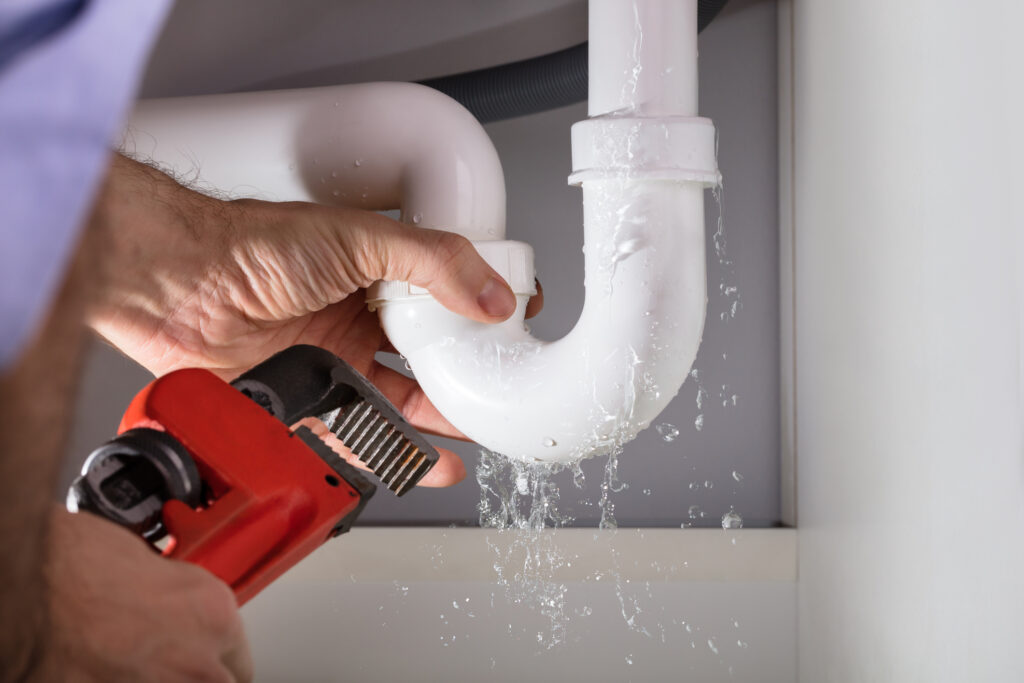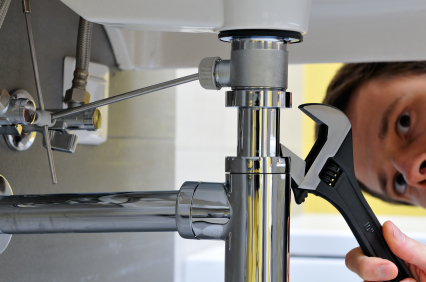Emergency Tips: Steps to Take Until Support Arrives
Emergency Tips: Steps to Take Until Support Arrives
Blog Article
The author is making a number of great points on Expert Tips for Emergency Plumbing Repairs overall in the content on the next paragraphs.

Plumbing emergency situations can strike at any time, causing anxiety and prospective damage to your home. Whether it's a burst pipe, a clogged up drainpipe, or a dripping tap, understanding how to manage the scenario up until a professional plumbing professional shows up can save you from more issues. This short article provides necessary emergency plumbing ideas to help you minimize damages and regain control throughout a plumbing situation.
Turn Off the Water
The primary step in any pipes emergency is to shut down the supply of water. For local issues, such as a dripping faucet or commode, shut off the shutoff near the fixture. When it comes to a major leakage or burst pipeline, locate your home's major water shut-off valve and transform it off instantly. Understanding the location of these shutoffs ahead of time can save beneficial time during an emergency situation.
Address Small Leakages with Temporary Solutions
Small leaks can promptly end up being substantial troubles if left unattended. Utilize these short-lived fixes until expert aid gets here:
While these fixes aren't permanent, they can assist lessen water loss and damages.
Unclog Drains Pipes Safely
A stopped up drainpipe can be an irritating and unpleasant issue. Right here's exactly how to tackle it:
If these techniques do not function, prevent utilizing extreme pressure, as it might aggravate the clog.
Take Care Of Overflowing Toilets
An overruning commode can create immediate chaos. Here's what you should do:
Turn off Your Water Heater
In particular emergency situations, such as a burst pipeline, it's smart to turn off your water heater. This protects against overheating or damages to the system when water stops moving. Shut off the power supply to the water heater (electrical or gas) and allow it cool down to stay clear of prospective hazards.
Momentarily Stop a Burst Pipeline
A burst pipeline can cause significant water damages in minutes. To minimize the problem:
Call a professional plumbing professional quickly to attend to the issue completely.
Manage Frozen Pipes Meticulously
In colder environments, frozen pipelines are a typical emergency. If you believe a frozen pipeline:
Avoid More Damages
Taking quick activity to reduce damages can save you time and money in the future. Here's just how:
. Have an Emergency Situation Plumbing Set
Prepare a basic pipes emergency set to handle minor concerns efficiently. Your set should consist of:
Having these devices available can make a considerable difference in your capacity to manage emergency situations.
Know When to Call a Professional.
While quick fixes can assist briefly, particular pipes issues require instant specialist focus. Call a plumber if:.
Promptly contacting a professional guarantees the problem is solved appropriately and protects against more difficulties.
Verdict.
Plumbing emergency situations can be overwhelming, but with the right knowledge and tools, you can manage the situation effectively until help arrives. By turning off the water supply, addressing tiny leaks, and utilizing short-term fixes, you can minimize damages and maintain your home safe. Bear in mind, these ideas are momentary options; always speak with a certified plumber to take care of the origin of the issue. Preparation and quick thinking are your ideal allies in any kind of pipes emergency.
8 Helpful Tips for Managing Plumbing Emergencies at Home
If your plumbing system hasn’t failed once, wait for it because almost everyone has a story to tell. Sometimes, it could be simple emergencies such as a leaking pipe, a blocked cistern, or even a big burst pipe. In situations like this, you need to have some handy tips to save you some money and from possible damages.
Take care of minor issues early.
Sometimes, you could have avoided an emergency by taking proactive measures while it was still early. Some major plumbing emergencies can be a result of an ignored minor issue. We recommend that you have items like plumbing tapes and other related items. A plumbing tape can allow you to manage minor leaks before the plumber arrives.
Cut off the water supply.
This tip is essential in almost any type of leakage problem. For problems like minor leakages in the toilet or kitchen, turn off the supply that takes water to the affected pipes. If the leakage is a major pipe, you must shut off the supply valve to the entire building. This will help you avoid flooding your home and neighbors if you share a flat.
Know your plumbing system
Folks typically move into a new apartment without understanding the water supply around the building. This can prove disastrous if a water emergency arises and the plumber is far away. The previous tip will prove useless if you don’t practice this one. More importantly, know where your water shut-off valve is located – you’ll need that knowledge to prevent potential home floods.
Have some common handy tools
There are lots of plumbing emergencies that you can handle without hiring a plumber. That’s why you must keep some tools available always. Some tools that you can use to fix simple plumbing emergencies easily include plumbing tapes, screwdrivers, thread seal tapes, plungers, pliers, tape measures, and rubber gloves.
Insulate your pipes from cold
You’ll save yourself from many plumbing expenses if you protect your water pipes from the cold. This is because of the harmful effects that cold weather can have on your pipes. During winter, your pipes can burst from being overly expected to freezing temperatures. So, make sure insulators are there to keep the pipes working correctly.
Avoid practices that will clog your toilet.
Many people indulge in practices that can damage the plumbing system of the entire building. One of these is when they use their toilet to dispose-off garbage. They flush all kinds of things, such as paper towels, bandages, hairs, female sanitary products, etc., down the toilet. This will block your toilet in the long run, incurring unnecessary expenditures. Dump such waste in the trash instead.
Check your dials regularly.
Sometimes, there could be leakages in your home without noticing them in time. So, constantly monitor your water meter dial. If the dial is reading when there is nobody using water, this is an indicator that there is leaking. Check for leaks immediately. Call a plumber as soon as possible if you can’t find any.
https://www.constructionplacements.com/8-helpful-tips-for-managing-plumbing-emergencies-at-home/

Do you enjoy more info about What to Do While Waiting for an Emergency Plumber? Place a review below. We will be happy to hear your thoughts about this write-up. Hoping that you visit us again later on. Are you aware of another individual who is excited about the topic? Do not hesitate to share it. I take joy in your readership.
Click For More Information Report this page